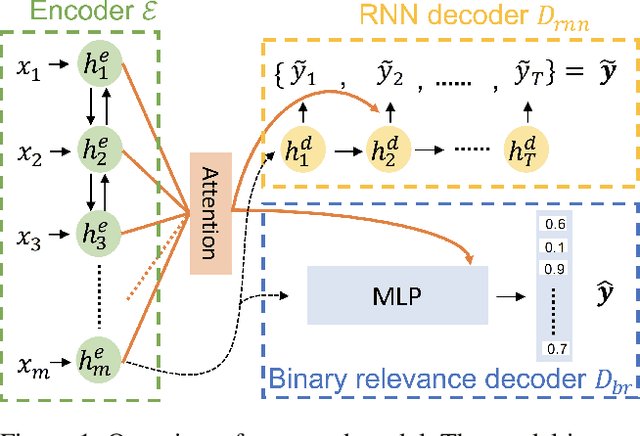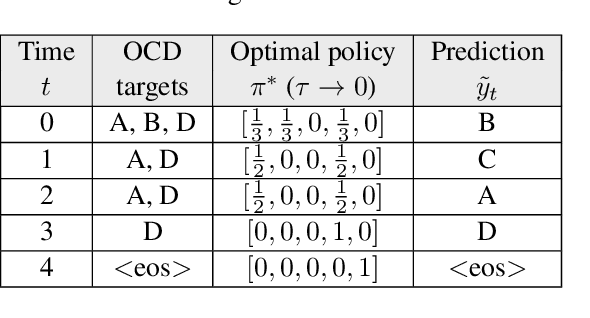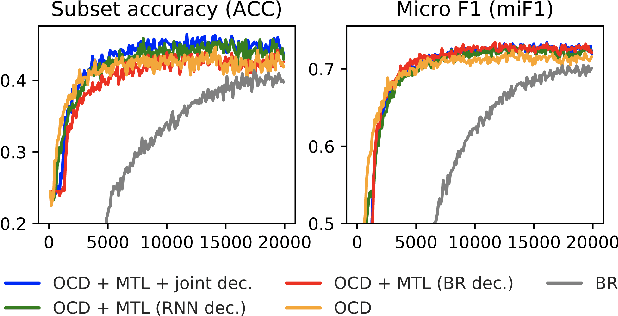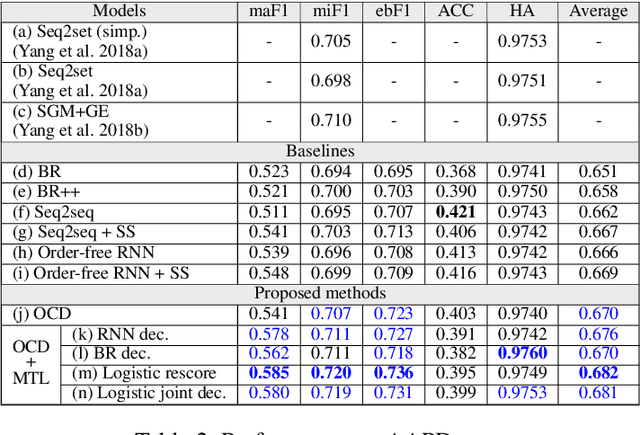Order-free Learning Alleviating Exposure Bias in Multi-label Classification
Paper and Code
Sep 08, 2019



Multi-label classification (MLC) assigns multiple labels to each sample. Prior studies show that MLC can be transformed to a sequence prediction problem with a recurrent neural network (RNN) decoder to model the label dependency. However, training a RNN decoder requires a predefined order of labels, which is not directly available in the MLC specification. Besides, RNN thus trained tends to overfit the label combinations in the training set and have difficulty generating unseen label sequences. In this paper, we propose a new framework for MLC which does not rely on a predefined label order and thus alleviates exposure bias. The experimental results on three multi-label classification benchmark datasets show that our method outperforms competitive baselines by a large margin. We also find the proposed approach has a higher probability of generating label combinations not seen during training than the baseline models. The result shows that the proposed approach has better generalization capability.
 Add to Chrome
Add to Chrome Add to Firefox
Add to Firefox Add to Edge
Add to Edge